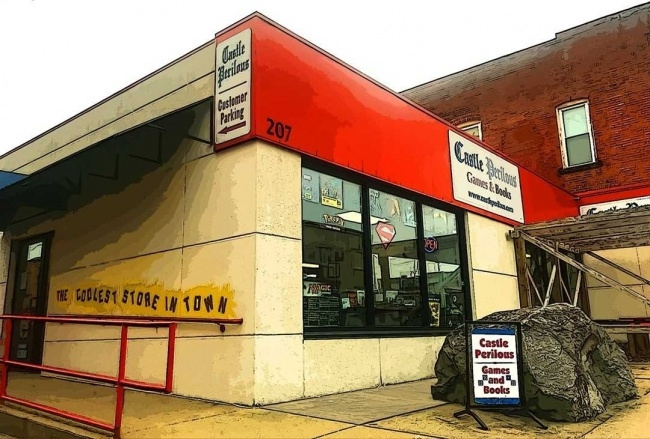Rolling for Initiative is a weekly column by Scott Thorne, PhD, owner of Castle Perilous Games & Books in Carbondale, Illinois and instructor in marketing at Southeast Missouri State University. This week, Thorne offers up three practices that he would like to see publishers adopt in 2022.
It is early in the year, so here are a few practices that I would like to see publishers incorporate into their businesses for 2022:
Remember your older games. When I last checked, the U.S. had somewhere in excess of 330 million people. Not all of them have bought your older games. Given that I see publishers touting that their game has sold 50,000 copies or 100,000 copies or 250,000 copies or even a million copies, that still leaves over 300 million people who have not purchased it. Monopoly, still around since the mid-30s, sells around 2 million copies per year.
While it is certainly more enjoyable to promote your new game and watch it climb BoardGameGeek’s The Hotness chart, those games that you started out publishing, if they are good, still sell. Ticket to Ride still sells; Boss Monster still sells; heck, the basic Munchkin game still outsells any of the variations Steve Jackson Games has put out over the past two decades. Come out with new games, but spend time and effort promoting the games that got you started and which customers still want. There are still over 300 million people in the U.S. that do not own a copy.
Tell us what you want done with your promo items. About once a month, we get a package of promotional items, sometimes from Wizards of the Coast, sometimes Konami, sometimes another publisher. However, all we get is promo items in a package. There is rarely indication as to what you want us to do with these items. Are we supposed to give it away with purchase, run an event, hand them out for free?
Yes, you probably sent me an email or posted some information about the promotion on your website. Unfortunately, we likely received that email before the item arrived. We also may not look at your website regularly (sorry, I'll try to do better), or the person who received the shipment may not be the same one who checks the email. Our store receives about 300-400 emails every day and I know of stores receiving far more. There is a pretty good chance that your email got overlooked, deleted, or noted and forgotten.
So, "please, please, please" include a note with your item with instructions regarding how you want us to use it. We then have the information right with the item and can act upon it. Also, if you send several items, include a packing list. This way we know what to expect and can notify you if something is missing.
Include invoices. Somewhat similar to the previously mentioned suggestion, include an invoice, or at the very least a packing slip telling us what is in the box. I know that Games Workshop likes to email invoices and for a good while, did not include a paper copy with the shipment. However, as noted above, the person who gets the email is often not the same person that processes the shipment. Downloading and printing off the invoice adds time and inconvenience to processing the shipment. A packing slip with only the items included listed means stores must take extra time to look up the items on the publisher’s or distributor’s website to find out cost. Including as much information as possible with the shipment makes it quicker to process the order and get it out.
What other things could publishers do to make retailers lives easier without much effort on their part? Post in the comments or email me at castleperilousgames@gmail.com.
The opinions expressed in this column are solely those of the writer, and do not necessarily reflect the views of the editorial staff of ICv2.com.

Column by Scott Thorne
Posted by Scott Thorne on January 17, 2022 @ 1:30 am CT



